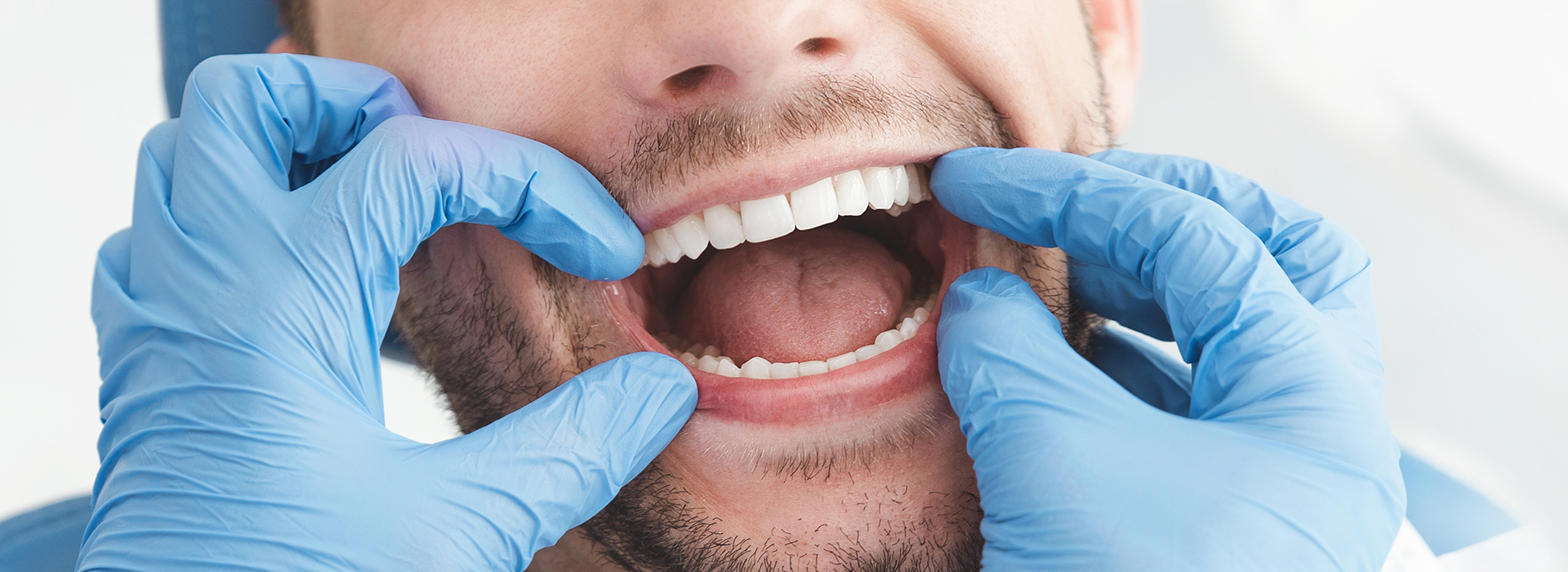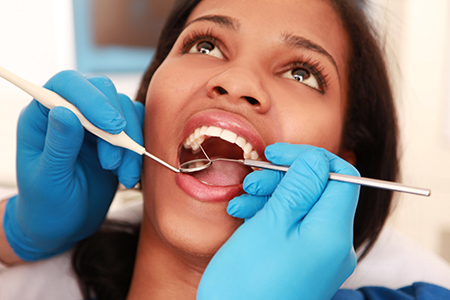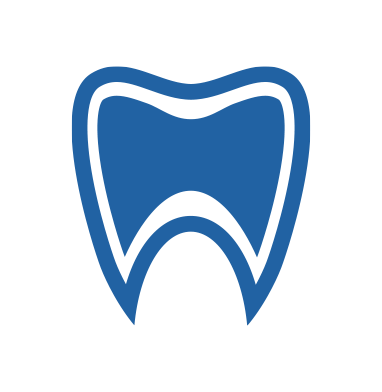
At the office of M. Kurt Berky, DDS, PC, we believe the best way to keep your smile healthy is to catch concerns early. A thorough oral exam is more than a quick glance — it’s a careful, methodical review of your teeth, gums, bite, and the surrounding soft tissues so we can identify issues before they become problems. Regular exams are the foundation of preventive dentistry and the starting point for personalized care.
Our team focuses on clear communication and practical guidance so patients understand both what we find and why it matters. During an exam we combine visual inspection, hands-on assessment, and targeted diagnostics to form a complete picture of your oral health. The result is a concise plan that prioritizes prevention and preserves function and appearance.
Your first appointment establishes where your oral health stands today and gives us the baseline for future care. We begin by reviewing your medical and dental histories, paying attention to medications, past procedures, and any health conditions that affect oral care. Sharing symptoms, concerns, and treatment goals helps us tailor the exam to your needs.
Next, the clinician completes a focused clinical exam. That includes checking each tooth for decay or damage, evaluating gum health, assessing your bite and jaw function, and screening the soft tissues of the mouth, head, and neck. If you report pain, sensitivity, or a history of clenching or grinding, those areas receive extra scrutiny so we can identify contributing factors.
When warranted, we recommend diagnostic images to look beneath the surface. X-rays and other imaging reveal hidden decay, bone levels, root conditions, and the status of unerupted or impacted teeth. After the exam and any imaging, we review findings with you and explain recommended next steps, whether that’s education, hygiene support, monitoring, or treatment planning.

An oral exam is not just about cavities or clean teeth — it’s a health check with implications beyond the mouth. Emerging research links oral inflammation and infection to conditions such as cardiovascular disease, diabetes, and respiratory problems. By identifying and treating gum disease early, we help lower the risk of complications that can affect overall well-being.
Equally important is the detection of oral lesions and signs that could indicate systemic issues. Persistent sores, unusual patches, or unexplained oral changes may signal nutritional deficiencies, immune disorders, or other medical concerns. Our screenings are designed to detect irregularities early and guide patients to appropriate medical follow-up when needed.
Because many systemic diseases show oral signs before they are diagnosed elsewhere, routine dental exams serve as an additional safeguard for your health. We document findings carefully, monitor trends over time, and coordinate with your medical providers when interdisciplinary care will benefit the patient.

Routine checkups are the backbone of preventive dentistry. While a professional cleaning removes plaque and tartar that home care can miss, the visit also gives us a chance to reassess risk factors and reinforce habits that support long-term oral health. Prevention saves time and avoids more invasive procedures down the road.
During a standard visit, a dental hygienist will remove built-up deposits, polish the teeth, and provide tailored instruction on brushing and flossing techniques. We discuss dietary factors, habit management, and other lifestyle changes that can reduce risk. For patients who grind their teeth, wear protective appliances, or need targeted fluoride or sealants, we explain how those interventions fit into a preventive plan.
For children and adolescents, routine exams monitor growth and development, helping us identify when orthodontic guidance may be appropriate. For adults, regular monitoring helps detect early wear, decay, and gum recession so we can intervene conservatively. Our objective is to keep your mouth healthy and functional through each stage of life.
We typically recommend regular visits at intervals based on individual risk — many patients benefit from biannual care, while others with specific needs may require more frequent attention. Whatever the schedule, the emphasis remains on prevention and maintaining a comfortable, confident smile.
Visual inspection tells us a great deal, but images are essential for seeing what lies beneath enamel and gum tissue. Dental radiographs expose hidden decay, evaluate bone support, detect root problems, and confirm the presence or absence of pathology that isn’t visible on the surface. They are a vital component of a complete oral exam.
Digital radiography has transformed how we capture and use images. Modern sensors deliver detailed pictures with far lower radiation than older film techniques, and the images appear instantly on a screen for immediate evaluation. Digital files are easy to store and share, which supports collaborative care and efficient record-keeping.
Beyond standard x-rays, advanced imaging such as cone-beam computed tomography (CBCT) produces three-dimensional views of dental anatomy. CBCT is an important tool for complex assessments, surgical planning, and implant placement because it reveals spatial relationships, bone volume, and proximity to vital structures that two-dimensional films can’t provide.

Different imaging techniques serve different diagnostic purposes. Bitewing films focus on the crowns of the back teeth and are especially useful for spotting early decay between teeth. Periapical images show an entire tooth from crown to root and are used to evaluate root health and detect infections at the root tip or surrounding bone.
A full mouth series combines periapical and bitewing views to provide a comprehensive evaluation of all teeth and supporting structures. Panoramic films deliver a broad 2D overview of the entire dental arch and jaws, useful for assessing eruption patterns, impacted teeth, and jawbone integrity. Cephalometric films, often used in orthodontic planning, capture a side profile of the skull and jaws to study growth and alignment.
When three-dimensional detail is required, CBCT supplies volumetric images that improve diagnostic confidence for surgical cases and implant planning. Because each type of image has advantages and limitations, we select the appropriate modality based on clinical need and the information necessary to plan safe, effective care.
After imaging, we review the results with you in clear terms, showing what we observe and explaining how those findings influence any recommended next steps. This collaborative discussion helps patients make informed decisions about their oral health.
In summary, a thorough oral exam is an essential preventive measure that protects both your smile and overall health. Our team focuses on careful assessment, appropriate imaging, and clear explanations so patients leave appointments informed and confident about their care. If you have questions or would like to learn more about oral exams and our approach to preventive dentistry, please contact us for more information.

Yes. We always welcome new patients and their families for care. Feel free to give us a call or reach out to us online to schedule a first visit or for any additional information on our office. We look forward to hearing from you!
Routine dental checkups and professional cleanings help ensure your smile remains in tip-top condition and that any developing problems receive the prompt care they require. While it's a good idea to schedule a checkup and cleaning twice a year, longer or shorter intervals between routine visits depend on your specific needs.
We understand that life gets complicated and busy, and for various reasons, you haven't been able to get to the dentist for care. Don't worry; it's always a good time to get back in touch with the health of your smile.
At M. Kurt Berky, DDS, PC, we offer skilled and compassionate care to address a wide range of dental needs. Whether you need a simple checkup and cleaning, restorations, periodontal treatment, root canal therapy, or the replacement of missing teeth to get your smile back into shape, we provide precise, gentle, stress-free treatment to give you a smile that is as beautiful as it is healthy.
Give us a call today; we're happy to address all your questions and concerns about getting your smile back in tip-top condition.
For pregnant women, practicing good oral care and seeing the dentist to maintain a healthy smile is considered an important component of prenatal care. Researchers have found that pregnancy not only increases the risk of oral health problems, but these problems may also lead to pregnancy complications. At the office of M. Kurt Berky, DDS, PC, we provide the skilled and compassionate care required to help expectant mothers keep their teeth and gums in tip-top condition. While certain procedures are not recommended during pregnancy, we provide the necessary care and take all the necessary precautions required.
Thanks to advances in modern dentistry, teeth that have been affected by a range of imperfections or that have sustained damage from trauma or dental decay can be restored to produce a naturally beautiful looking and functional smile.
As skilled and experienced providers of care, our office can effectively improve and enhance the appearance of teeth that are stained, discolored, misshapen, chipped, fractured, gapped, crowded, or broken down due to dental decay. At the office of M. Kurt Berky, DDS, PC, we offer a comprehensive selection of the leading-edge cosmetic solutions from teeth whitening procedures, dental bonding, tooth-colored fillings, and veneers, to prosthetic solutions and dental implants to rebuild complete and beautiful smiles.
Contact our office to learn more about the many ways we can help you create the smile you've always wanted.
If you're visiting M. Kurt Berky, DDS, PC for the first time, it is helpful that you contact your former dental office and have your records sent over to us. Make note of any problems you may have so that you can discuss them with your dentist.
To provide efficient service, we ask you to please bring your insurance card, an ID, plus any referral slips or diagnostic records given to you by another office. If you are taking medications, please note or make a list of what they are as you will need to provide that information.
Yes! We assure you that both you and your family will be in good hands at the office of M. Kurt Berky, DDS, PC.
We do our best to make sure every patient who steps into our office for care is put at ease. We provide precise and gentle care and our skilled, compassionate team strives to make every visit stress-free. You can rest assured that your smile is in the best of hands and that we are doing all we can to ensure your comfort throughout every procedure. While we always take the time to explain every step in care, feel free to ask us any questions about local anesthesia and methods of dental sedation.
At the office of M. Kurt Berky, DDS, PC, we strive to provide the highest quality of care to address all your dental needs. Once we've had the opportunity to examine your smile, we can give you a clear picture of any dental issues that are present, along with a quote for what the cost of treatment will be. The cost of care all depends upon the extent and complexity of issues affecting the health or appearance of your smile and the types of procedures that are required. Our goal is to make dental care more affordable so that you can begin treatment without any additional stress or delay.
Keep in mind that with routine dental checkups and periodic care, we can help prevent dental disease while treating emerging problems early in their onset to avoid larger issues and more expensive care down the road.
Routine dental checkups and preventive care procedures may be covered under your dental insurance plan requiring little to no out-of-pocket expense. We invite you to check our financial information page or give us a call to find out if our office participates with your plan, and if you have any other questions about dental insurance, dental savings plans, forms of payment, or financing options. We welcome your inquiries and do our best to help you begin care without additional stress or delay.
If you've lost a tooth due to injury, decay, gum disease, or any other reason, we recommend dental implants to replace missing teeth. Dental implants come the closest to replicating the look, feel, and function of your natural teeth.
Absolutely! Both flossing and brushing regularly are equally important to maintain your oral health. While brushing cleans the surface of your teeth, flossing cleans in between them. Flossing is important to prevent plaque buildup, which can cause gums to recede and lead to periodontal disease.
Even if you have dentures, it is still necessary to see a dentist! Dental checkups help ensure that your dentures are comfortable, fitting properly, and that there are no other problems. Beyond assessing your dentures, our dentist will also perform a thorough examination of the jawbone, and surrounding soft tissues both inside the mouth, the face, and neck, to confirm that you remain in good oral health.
Emergency dental care is a service we hope you'll never need- but if you do, the office of M. Kurt Berky, DDS, PC is here for you!
Whether you're suffering from a chipped tooth, toothache, or any problem affecting your oral health, you can be sure to get the prompt attention and compassionate care you require at our office. Patient care and comfort are our top priorities, and we offer a comprehensive range of the most advanced services to address a broad spectrum of dental needs.
While the pain of a toothache is one of the more common reasons that patients come to our office for emergency dental care, we also promptly treat emergencies that are not necessarily painful like crowns that have been dislodged and broken dentures that leave embarrassing gaps in one's smile.
You can rest assured that your oral health is in the best of hands at our office. We'll quickly determine exactly what's wrong, explain your treatment options, and then provide the precise and gentle care you require to alleviate your discomfort and get you back on the path to oral health and wellness.
Your health and comfort are our top priorities. If your dental emergency is painful, if it affects the appearance of your smile, or if you suspect that an infection is present, our office will make every effort to see you as soon as possible for care.
At the office of M. Kurt Berky, DDS, PC, we welcome patients of all ages for care and offer a comprehensive range of services designed to help every member of your family maintain a beautiful and healthy smile. Whether you or a loved one needs a routine checkup and cleaning, fillings, same-day crowns, a cosmetic smile makeover, the replacement of missing teeth or require the services of a skilled and compassionate emergency dentist, you can rely on our office for the highest quality care.
For more information on our office and the many services we provide, or to schedule an appointment for care, give us a call today.
An oral exam is a thorough clinical assessment of the teeth, gums, jaw joints and surrounding soft tissues that helps establish a baseline for your oral health. The exam includes a visual inspection, a review of your medical and dental history, and evaluation of bite and jaw function to identify problems early. Clinicians use the findings from the oral exam to detect cavities, gum disease, oral lesions and other conditions before they become more complex.
Routine oral exams are a cornerstone of preventive dentistry because early detection generally allows simpler, more effective treatment. Examinations also create an opportunity for patient education on home care, diet and habits that affect oral health. Combined with diagnostic imaging when appropriate, oral exams provide the information clinicians need to design a personalized care plan that supports long-term wellness.
Your first checkup visit typically begins with a careful review of your medical and dental histories and a discussion of any concerns or symptoms you may be experiencing. The clinical portion of the visit includes a comprehensive oral exam, an oral cancer screening and a periodontal evaluation, as well as an assessment of occlusion and TMJ function. Diagnostic films such as digital x-rays may be recommended to visualize tooth roots, bone levels and other structures not visible during a visual exam.
After the examination and any necessary imaging, the dentist and hygiene team will summarize their findings and outline any recommended next steps. This conversation includes prioritized treatment options, timing and preventive measures to reduce future risk. The goal of the first visit is to establish a baseline and to develop a comfortable, collaborative plan for ongoing care.
For most patients, a routine oral exam every six months is recommended to monitor oral health, remove accumulated plaque and tartar, and catch problems early. Some individuals with a history of periodontal disease, extensive restorative work or certain medical conditions may need more frequent visits, and the dental team will tailor the interval based on your specific risk factors. Regular exams combined with professional cleanings help reduce the likelihood of cavities and gum disease and keep diagnostic images up to date.
At M. Kurt Berky, DDS, PC, we typically recommend twice-yearly checkups for routine maintenance, and we will advise a personalized schedule if you require closer monitoring. Maintaining a consistent exam schedule allows the team to track changes over time and to intervene early when signs of disease appear. Consistent preventive care is one of the most effective ways to protect your smile for the long term.
Dental x-rays provide essential information that cannot be obtained from a visual exam alone by revealing the internal anatomy of teeth, bone levels and supporting structures. X-rays help identify issues such as interproximal cavities, root problems, impacted teeth and bone loss associated with periodontal disease. They are also used to plan restorative and surgical procedures, including implant placement and endodontic treatment.
Many practices now use digital radiography, which reduces radiation exposure and delivers images instantly for efficient review and storage. Digital images can be enhanced and shared among providers when collaborative care is needed, and they are kept in the patient record for longitudinal comparison. When recommended as part of your oral exam, x-rays are a critical tool for accurate diagnosis and safe treatment planning.
The specific types of x-rays recommended depend on your symptoms, history and the goals of the exam; common images include bitewings, periapical films and panoramic radiographs. Bitewing x-rays are excellent for spotting decay between teeth, while periapical films capture the entire tooth from crown to root and identify root or bone issues. A panoramic film provides a broad two-dimensional view of the entire dentition and jaws and is useful for assessing eruption patterns, impacted teeth and overall bone structure.
When more detailed three-dimensional information is required, cone-beam computed tomography (CBCT) can provide volumetric images for advanced diagnosis and treatment planning. CBCT is frequently used for implant planning, surgical evaluation and complex anatomical assessment. Your dentist will recommend the most appropriate imaging modality based on your individual needs and clinical findings.
Oral cancer screening is an important component of a comprehensive oral exam and involves a careful visual and tactile inspection of the lips, tongue, floor of mouth, cheeks, throat and neck. Clinicians look for persistent sores, white or red patches, lumps, indurations or other changes in tissue texture and color that may warrant further evaluation. Palpation of the neck and salivary gland areas helps identify enlarged lymph nodes or masses that require follow-up.
In some offices adjunctive technologies such as tissue fluorescence may be used to aid the visual exam, but a biopsy is required to confirm any suspicious finding. Early detection of oral cancer significantly improves outcomes, which is why routine screenings are performed at regular checkups. If the clinician observes a concerning lesion, they will explain the next diagnostic steps and coordinate appropriate care or referral.
Researchers have documented associations between poor oral health and several systemic conditions, including diabetes, cardiovascular disease and respiratory problems, among others. While associations do not always indicate direct causation, oral inflammation and infection can complicate management of certain medical conditions and may serve as an indicator of systemic health. During an oral exam, the dental team may note oral signs such as dry mouth, mucosal lesions or severe gum inflammation that suggest the need for medical evaluation or coordination of care.
Because the mouth can reflect overall health, routine oral exams play a role in whole-patient care by identifying possible oral manifestations of systemic disease. The dentist will discuss any observations that may be relevant to your primary care provider or specialists and recommend appropriate monitoring or treatment. Maintaining good oral health is an integral part of supporting general health and well-being.
A periodontal evaluation assesses the health of the gums and supporting bone around your teeth, and it typically includes measuring pocket depths, checking for bleeding on probing and documenting gum recession. These measurements help determine whether gingivitis or periodontitis is present and the severity of any disease. Radiographs are reviewed to evaluate bone levels, and the clinician observes for signs such as mobility, furcation involvement or persistent inflammation.
Based on the periodontal assessment, the team will recommend a tailored approach to care that may include professional cleanings at specific intervals, targeted hygiene instruction or periodontal therapy when indicated. Early-stage gum disease can often be managed with improved home care and routine professional maintenance, while more advanced conditions may require specialized treatment. The aim is to halt disease progression and preserve supporting structures for long-term oral health.
Assessment of the temporomandibular joint (TMJ) and occlusion is an integral part of a comprehensive oral exam and involves observing jaw movement, listening for joint sounds and palpating muscles for tenderness. The clinician will evaluate how your teeth come together, check for signs of clenching or grinding and look for wear facets, fractures or other evidence of parafunctional habits. Range-of-motion testing and specific clinical maneuvers can help identify dysfunction that may be contributing to pain or limited opening.
If TMJ dysfunction or occlusal problems are suspected, the dentist will discuss conservative management options such as habit modification, occlusal splints or referral to a specialist when appropriate. Imaging and bite analysis may be used to clarify the diagnosis and guide treatment planning. Early recognition and conservative care often reduce symptoms and improve function without invasive intervention.
Oral exams for children focus on preventing decay, monitoring jaw and tooth development and establishing healthy homecare habits from an early age. During pediatric exams the clinician evaluates eruption patterns, checks for early signs of cavities and assesses bite alignment to determine whether orthodontic monitoring may be needed. Preventive measures such as fluoride treatments, dental sealants and education for parents and children are commonly discussed to reduce the risk of future disease.
The dental team also watches developmental milestones and will recommend timely interventions if growth patterns suggest a need for orthodontic evaluation or other specialty care. Regular exams create a foundation for lifelong oral health by familiarizing young patients with dental care and reducing anxiety about visits. The team at M. Kurt Berky, DDS, PC works to make pediatric visits informative and comfortable while promoting positive habits that last a lifetime.

Have questions or need to book your next appointment?
Our friendly staff at M. Kurt Berky, DDS, PC is ready to assist. Whether by phone or our online contact form, contacting us is simple and convenient. Start your journey to a healthier, brighter smile today by reaching out to our office.